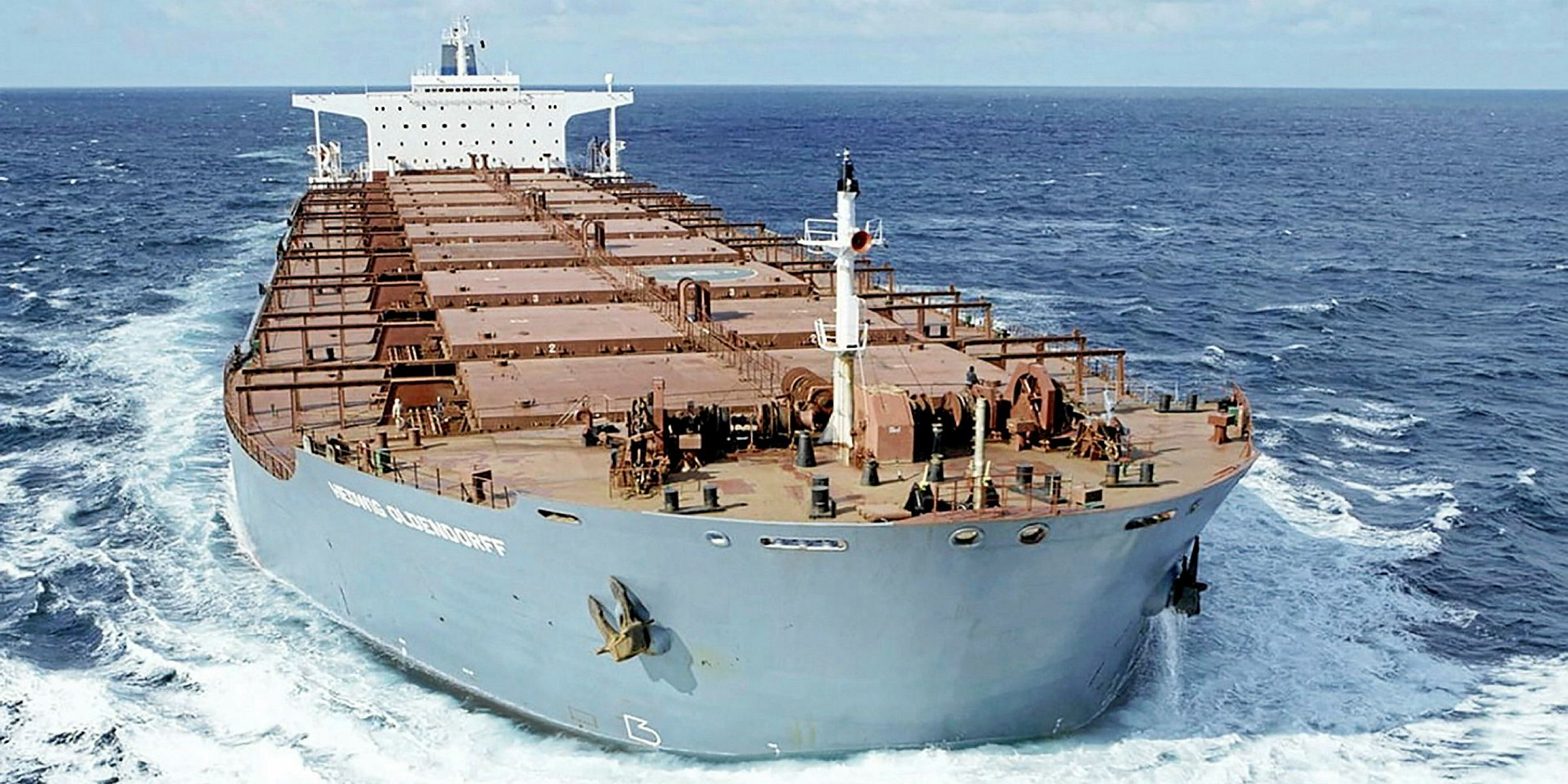Oldendorff Carriers has lost a Chinese court case to the Bank of China as expected. However, the $8.35m ruling against the German dry bulk giant will allow it to collect at last on what is now a $12.48m claim that has been mounting for more than four years.
The claim for losses and legal expenses comes in a complex multi-party bill of lading case that has been litigated in London and Qingdao. It involves the 73,400-dwt Zagora (ex-Hedwig Oldendorff, now Zhun Xing 3, built 2001) and an iron ore shipment that went badly wrong.
Oldendorff is appealing against the loss in the Qingdao Maritime Court but expects at best only some adjustment of the sum.
The important thing to Oldendorff is the court's decision now provides a definite basis for collecting the larger sum, including interest and legal and arrest expenses, from its own customer, a minerals trading affiliate of the steelmaking Shougang Group.
"There's no question that we will get paid now," a Lubeck-based Oldendorff official said. "These companies are all big companies with assets outside China, and they'll either play fair and pay up or we'll force it in court."
Oldendorff's charterer, SCIT Services HK, and SCIT's charterer, Xiamen C&D Minerals, have pursued an "ostrich strategy", the official added. This led to their being hard to find at critical stages of the dispute and even dropping out of litigation in an English High Court case.
"Now that the quantum and liability facts of the case are known, it is time for the claim to be settled. [We hope] they and other charterers will see that the ostrich strategy is not a good one," the official said. "The costs build up over time and in the end they will still have to pay."
As TradeWinds has reported previously, the Goulandris Bros-controlled panamax, then on time charter to Oldendorff, called at Lanshan, China, in December 2013 with an Australian iron ore cargo, which charterer SCIT Trading requested that the German company deliver without receiving the original bill of lading.
Oldendorff agreed to do so in return for a letter of indemnity (LOI), a fateful decision that has kept the company, its lawyers and $10.3m of its funds tied up ever since.
The problem was the ore was meant for Shanxi Haixin International Iron & Steel Co, which was in the process of financial collapse, and the party that kept the bill of lading was the steelmaker's financier, Bank of China.
In effect, the Oldendorff official explains, the bank converted its unsecured risk of default by Shanxi Haixin into a secured claim against Oldendorff. That allowed the bank to arrest the Zagora the next time it called at Qingdao, in August 2014.
The chartering chain down from Goulandris and Oldendorff Carriers passed through Shougang arms SCIT Services HK and SCIT Trading and finally a subsidiary of Xiamen C&D Minerals Co, which sold the ore to the doomed steel mill.
When the vessel was arrested, Oldendorff called on SCIT to honour the bill of lading, and SCIT in turn called on Xiamen C&D, but without success. That forced Oldendorff to put up $10.3m to secure the Bank of China claim so that Goulandris' ship could sail, and to bring an English High Court action, which ruled in December 2016 that all LOIs in the case were valid.
At the time, Oldendorff officials told TradeWinds the question of whether LOIs can be relied on in China was worth taking to court for its own sake.
Representatives of SCIT and Xiamen C&D could not be reached for comment before TradeWinds went to press.



